2023 International Congress on Medieval Studies: Report
October 23, 2023 in Events, ICMS, Index of Medieval Art, International Congress on Medieval Studies, Kalamazoo, Manuscript Studies, POMONA, Societas Magica, Uncategorized
2023 International Congress on Medieval Studies: Report
58th ICMS (11–13 May 2023)
Held in a transitional ‘hybrid’ form
with Sponsored and Co-Sponsored Sessions
an Open Business Meeting
and Co-Sponsored Reception
[Posted on 22 October 2023]
After the successful completion of our activities at the 2023 International Congress on Medieval Studies (ICMS), we offer a Report about them. For their programs and the abstracts of their presentations, see 2023 International Congress on Medieval Studies: Program.
Note that Abstracts for Papers published on our website appear in the Indexes of the Abstracts for Papers, listed both by Alphabetical order of Author’s Surname and by Year.
Logistics
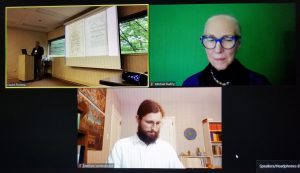
2023 ICMS: Pedagogy II viewed online. Michael Allman presents. Photography by Mildred Budny.
This year’s Congress presented more logistical challenges than ever before, in our experience of attending the annual ICMS. They were due to the complex and incompletely or perplexingly described conditions for holding the Congress in a nominal ‘hybrid’ format, with few fully hybrid events and the necessity for organizers mostly to choose either in-person or online formats — or to provide the alternative through their own resources.
In that way, for example, once the rules were clarified (within only a fortnight of the Congress), the RGME was able resourcefully to provide (through its own Zoom subscription) for online access to events assigned as in-person and to arrange (sometimes with payment) for a room to be made available for registrants on site at the Congress to gather for participating in sessions assigned as online. We thank the Congress staff for enabling those arrangements once we learned that they might be permitted.
Our activities comprised five co-sponsored scholarly Sessions, our annual Open Business Meeting at the Congress, and a co-sponsored Reception.
The extra arrangements for in-person facilities for the online sessions and online access for in-person sessions were designed also for the convenience of participants for our events on the first day of the Congress, which had a consecutive series of Morning Session / Lunchtime Business Meeting / two Afternoon Sessions / Reception. With the Morning Session in a nearby building, the other events that day, by design, took place on one building.
Co-Sponsorship
- Societas Magica: 2 Sessions and the Reception
- Schoenberg Institute for Manuscript Studies (SIMS): 2 Sessions
- Polytheism-Oriented Medievalists of North America (P.-O.M.o.N.A.): 1 Session
- Index of Medieval Art at Princeton University: Reception
This year marked Year 19 of our co-sponsorship with the Societas Magica; the second (non-consecutive) year of co-sponsorship with POMONA, the third of co-sponsorship with the Index of Medieval Art, and the first year of co-sponsorship with SIMS.
As always, we thank the host, organizers, co-sponsors, presiders, speakers, respondents, advisers, and participants for our activities at the Congress, along with the Congress staff and support staff.
The Sequence of Events
Day 1 of the Congress (Thursday 11 May) had a full set of events. They opened with the Morning Session, led to the RGME Open Business Meeting (with lunch provided), followed with a pair of Afternoon Sessions, and rounded out with the co-hosted Reception.
Day 3 (Saturday 13 May) had a pair of Afternoon Sessions.
The shortness of the notice and the complexity of the RGME’s extra preparations for an ad-hoc fully hybrid format imposed further problems in communicating updated information which, in the rush of last-minute preparations and conflicting information, meant that not all participants received the relevant information in time. Notably this affected the extra online arrangements for the in-person sessions on Saturday afternoon, so that the first one did not have an on-site log-in for the online component.
Informal “Evening Sessions”. Outside the Program, a set of traditional informal gatherings offered the occasion to revive the in-person tradition of meetings in an ad-hoc ‘Board Room’ where board games, brought to the table for the occasion, formed a focus of activity and conversation. As usual, they included some elements of RGME planning. This year, they included an ad-hoc hybrid component for participation at a distance as well.
Our Report of all our activities at the 2023 Congress relates their accomplishment, celebrates the presentations, praises the work of organization, notes a few changes in the program and accessibility for the sessions, displays the full set of posters for our events, and illustrates some memorable moments.
Logistics Revisited
This year, the partly in-person, virtual, and hybrid modalities to the Congress added considerably to the complexity, tasks, resources, and expenses for the RGME in preparing for, and rearranging, our events there. The complexity encouraged us to create more flexible and resourceful arrangements for some events held in person or virtually, so as to accommodate attendance in these different modalities directed by the Congress, so long as any fully hybrid event is not permitted to us as a given component by the host institution for this online/offline Congress.
Some examples of creative restructuring:
1) Optional RGME Zoom Meeting Room in live time for some In-Person events. For Congress participants unable to travel to the place, but registered for the Congress, we offered an optional Virtual Meeting Room by RGME Zoom subscription. In this way, an In Person Congress event might be accessed virtually — with registration for each of them through our RGME Eventbrite Collection.
We provided the RGME Zoom option (by specific registration, without charge) for
- our In Person Open Business Meeting on Thursday lunchtime and
- our pair of co-sponsored In-Person Sessions on Saturday afternoon.
2) Especially Reserved In-Person Room for In-Person Attendees of the Congress who were to log-on to our Virtual Sessions. These reserved rooms were prepared (in different, but adjacent, buildings) for:
- our first, Virtual Session on Thursday morning, with an In-Person option (Session 50 / Schneider 1220)
- the pair of our co-sponsored Virtual Sessions on Thursday afternoon, with In-Person option (Sessions 87 + 137 / Fetzer 1030)The second dedicated room is located a few steps away, on the same floor, in the same building, from the two In-Person events before and after that pair of Sessions, namely the Open Business Meeting and the Reception.
Perhaps needless to say, these extra arrangements added to the confusing conditions of a Congress with some sessions in fully hybrid modality, others solely in online modality, and others still solely in-person. They required more updates, a set of Zoom registrations for the specific RGME coverage for offsite participants, extra room reservations (above those already reserved with catering for our Open Business Meeting and Reception), extra circulars with detailed information, and more.
A description of these resourceful efforts can be found on the announcement of our Congress Program. See 2023 International Congress on Medieval Studies: Program.
Amidst all these efforts, we heard various attendees (RGME and others) articulate frustration and disappointment that the structure of this year’s Congress limited and partly misleading — or at least confusing — approach to a so-called ‘hybrid’ event imposed more obstacles for a smooth participation that might reasonably be expected from an international conference of long standing, with dedicated core of some dedicated attendees and organizations with years’-long attendance records.
The Sessions
We survey them as presented in the order of the 2023 Congress Program. This year, because they represented a return to in-person events after a hiatus from 2020 to 2022, we prepared RGME Posters announcing them. The posters correspond with the principles set out in one of our RGME Booklets:
I: Session Co-Sponsored with Polytheism-Oriented Medievalists of North America (P.-O.M.o.N.A.)
This session is the second (non-consecutive) year of co-sponsorship with this organization. (See 2019 International Congress on Medieval Studies: Report.)
Next year will be the third. (See 2024 International Congress on Medieval Studies: Call for Papers.)

RGME Poster for 2023 Congress Session on “Words as Agents”
RGME Session 1) “Words as Agents”
Session 50 (Congress Program, page 19)
Online (with In-Person Option arranged by RGME)
Sponsor: Research Group on Manuscript Evidence
Co-sponsor: Polytheism-Oriented Medievalists of North America (P-OMoNA)
Organizer: Phillip Bernhardt-House
Co-Organizer: Mildred Budny
Aim
The idea of words as agents of specific actions, changes of status, or as means via which changes occur in the wider world is inherent in many forms of literate and verbal communication, underlying human social phenomena as diverse as legal systems, religious community formation and practices, and the practice of magic, amongst others. Textual amulets, deeds, dedicatory inscriptions, and other written matter (even entire alphabets!) can convey notions of words’ agency.
This session explores a variety of these, reflected in specific examples from pre-modern periods and cultures, from the Iron Age to the Renaissance and across wide geographic ranges.
Presider: Michael Allman Conrad (Research Group on Manuscript Evidence)
Presenters
Mildred Budny
“Where Words Collide: Metadata versus Scholarship in Manuscript Studies”
Shortly before the Congress, recent events led to recasting the presentation to incorporate fresh research on approaches to reception, transmission, and promulgation of information about manuscripts on an international stage. To update:
Summary
Metadata for manuscripts can sometimes clash with the original materials, for example by misstatements or mistaken assumptions about features and character of the book. Cases abound with fragments dispersed in Portfolios or Leaf-Books, issued with generic labels copied in library catalogues and WorldCat. We explore examples among Otto Ege fragments. A test-case of sorts concerns recent widespread attention to the 6th-century Gospels of Saint Augustine of Canterbury (Corpus Christi College, Cambridge, MS 286) and the transmission of knowledge or opinions about its characteristics.
Phillip Bernhardt-House (Academic Vagabond)
“The Ephesia Grammata as Grammatical Beings; Or, ‘That Orpheus Is Pretty Good . . . Who’s His Agent?’ ”
Respondent: Linde M. Brocato (University of Miami)
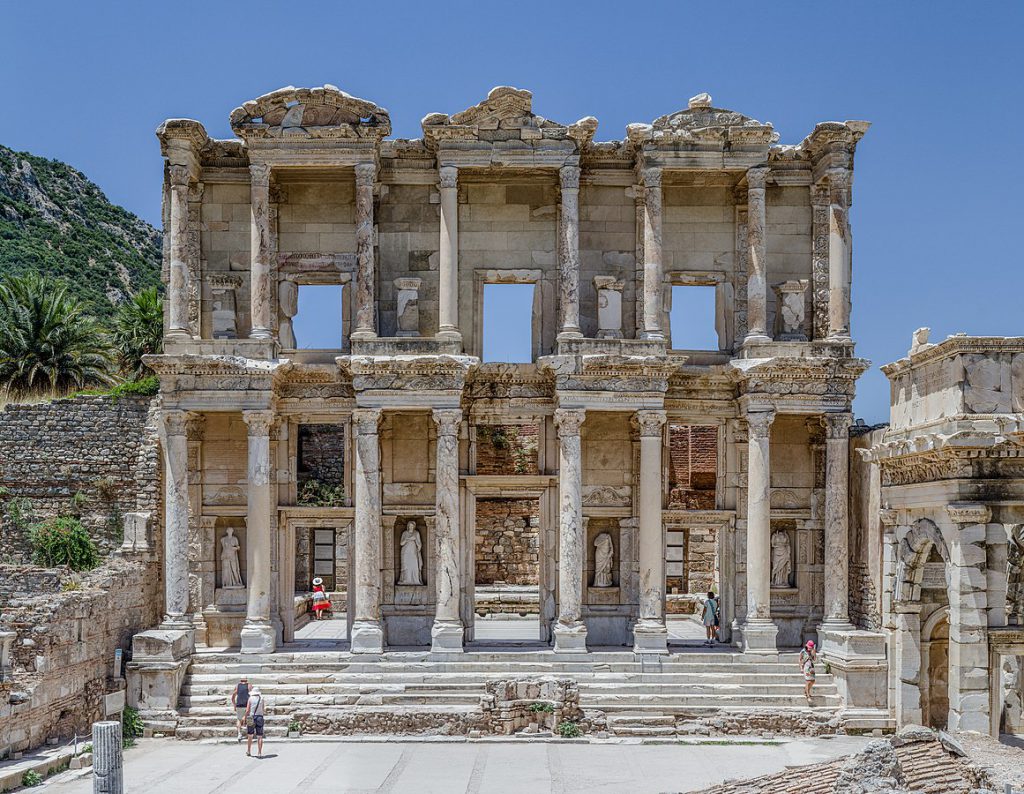
Façade of the Celsus library, in Ephesus, near Selçuk, west Turkey. Photograph (1910): Benh LIEU SONG, via Creative Commons.
*****
II. Pair of Sessions
Co-Sponsored with the Schoenberg Institute for Manuscript Studies

SIMS Logo
These Sessions represent a new co-sponsorship with the Schoenberg Institute for Manuscript Studies at the Congress.
Responses for the Call for Papers yielded more proposals appropriate for the subject that permission was granted for a pair of Sessions. They were designed to continue the tradition of our series of RGME Sessions at the Congress on “Medieval Writing Materials”, which began in 2014. (See 2022 International Congress on Medieval Studies Program.)
2–3. “Bound but not Gagged:
The Eloquence of Medieval Book Bindings”
Sessions 87 and 137 on Thursday 11 May
Online (with In-Person Option arranged by RGME)
Sponsor: Research Group on Manuscript Evidence
Co-sponsor: Schoenberg Institute for Manuscript Studies
Organizer: William H. Campbell (University of Pittsburgh — Greensburg) and
Co-Organizer: Mildred Budny (Research Group on Manuscript Evidence)
Aim
Medieval books communicate far more than the words on their pages. They were frequently subjected to damage and repair, to loss and addition, to division and recombination. Their bindings bear witness to the moments in their history that altered and shaped them, or — in the case of still older books recycled into binding material — destroyed them. This session is dedicated to everything about the codex that is not its text, to what J. A. Szirmai called The Archaeology of Medieval Bookbinding.
Part 1: The Eloquence of Medieval Book Bindings from German Lands
 Session 87. Thursday 11 May, 1:30 – 3:00 pm EDT
Session 87. Thursday 11 May, 1:30 – 3:00 pm EDT
(Congress Program, page 32)
Presider: Mildred Budny (Research Group on Manuscript Evidence)
Presenters
[Note: The sequence changed from the one formerly announced here and as published in the Congress Booklet, moving the Paper by William H. Campbell from first to third position. This change responded to technical difficulties obstructing the entry of two speakers in time into the conference system for the pre-set online modality, and then with the audio facilities, resulting in a delayed start time for the session.]
Order as presented:
William H. Campbell (University of Pittsburgh — Greensburg)
“Recogitabo tibi omnes annos meos: Tracing the Life of an Office of the Dead”
Michael L. Chrisman (Independent Scholar)
“Early Bindings of the Gutenberg Bible”
Barbara Williams Ellertson (The BASIRA Project)
“Spines and Fastenings: Binding Archaeology in Works of Art”
Handout. List of References for “Spines and Furniture: Binding Archaeology in Works of Art

Michael Chrisman at Work. Photograph reproduced by permission.
Part 2. The Eloquence of Medieval Book Bindings:
Diverse Regional Techniques

Poster for RGME/SIMS Session 1 of 2 for the 2023 ICMS
Session 137. Thursday 11 May, 3:30 – 5:00 pm EDT
(Congress Program, page 50)
Presider: William H. Campbell (University of Pittsburgh — Greensburg)
Presenters
David W. Sorenson (Allen Berman Numismatist)
“Some Medieval Islamic Bookbindings: A Ghost Story”
Eleanor A. Congdon (Youngstown State University)
“Covers of the Account Books in the the Datini Collection: Binding Information Together”
Yukie Baba (Hitotsubashi University and Baba Yukie)
“Curious Quire Signatures Discovered in a Fourteenth-Century Legal Manuscript”

2023 ICMS Session on Bindings II, online with in-person room. Photograph by Barbara Williams Ellertson.
*****
III. Sessions Co-Sponsored with the Societas Magica
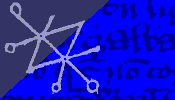
Societas Magica logo
In Year 19 of our Sessions co-sponsored with the Societas Magica, we held two Sessions.
4–5. “Moving Parts and Pedagogy, Parts I–II”
Sessions 369 and 419. Saturday 11 May (In person) in Fetzer Center 2040
Sponsor: Societas Magica
Co-Sponsor: Research Group on Manuscript Evidence
Organizer: David Porreca (University of Waterloo)
Modality: In person (with RGME Virtual option)
Part I: “Teaching Magic and Other Occult Arts”
Session 369. Saturday 13 May, 1:30 – 3:00 pm EDT
(Congress Program, page 136)
Aim
Magic, alchemy, geomancy, and other occult arts were never part of the official curriculum in any medieval university faculty. Moreover, magical treatises abound in claims of legitimacy in terms of belonging alongside other more overtly recognized sciences. Nevertheless, the abundance of surviving treatises, manuals, and commentaries suggests that there must have been some means outside the bounds of officially recognized institutions for these bodies of knowledge and practices to have been taught, learned, and transmitted, despite the negative light often cast upon them in ‘mainstream’ circles. This session aims to investigate the pedagogy of such arts and practices.
Presider: David Porreca
Presenters
Daniel M. Harms (SUNY Cortland)
” ‘To give myself to be carried immediatly into Hell’:
Weather, Witchcraft, and Two Late Seventeenth-Century Contracts
between a Magician and a Student”
Samuel P. Gillis Hogan (University of Exeter)
“Philosophy is the Child of Contention:
The Accretion of Theory in Instructional Chiromantic and Fairy-Summoning Texts
as a Response to Hostile Criticism”
RGME Poster for this Session

Part II: “Teaching Astrology and Other Liberal Arts”
Session 419. Saturday 11 May, 3:30 – 5:00 pm EDT (Fetzer Center 2040)
(Congress Program, page 154)
See the Fetzer Center Floor Plans.
Aim
During the later Middle Ages, astrology began to play an ever more prominent role in university curricula. It was frequently merged with astronomy as one of the Seven Liberal Arts, and it became required knowledge for the practice of medicine. These developments created a need for new masters capable of rendering its intricacies intelligible to the next generation of doctors and other practitioners. This session aims to examine how the pedagogy of astrology functioned, and how the teaching of that discipline fits alongside the rest of the Liberal Arts curriculum.
Presider: Marla Segol (SUNY University of Buffalo)
Presenters
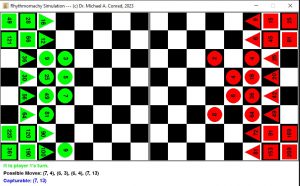
Rhythmomachy Simulation (Player 1’s turn). Image © 2023 Michael A. Conrad.
Michael Allman Conrad (Research Group on Manuscript Evidence)
“Gamified Numbers:
Board Games as Educational Instruments for Teaching Astrology and Other Quadrivial Arts”
Arina Zaytseva (Rice University)
” Ludwig Milich‘s Lutheran Astrology: The Art of the Wise, the Art of the Foolish”
David Porreca (University of Waterloo)
“Games and Pedagogy: William Fulke (1538–1589), Astrology, and Geometry”
Matthew Vanderkwaak (University College Dublin)
“Divine Instruments: The Role of the Heavens in Albert the Great‘s Astrological Cosmos”

Michael Allman Conrad presents his paper for the 2023 ICMS Pedagogy II Session.

*****
Note on Our 2023 Congress Sessions
The strong responses to the Call for Papers, in a suite of sessions co-sponsored by the Research Group, accord with our many years of participation in the Congress, both in person and online. That tradition is described in our ‘archive’ of Events and Congress Sessions.
- Congress Activities
- Sponsored Sessions at the International Congress on Medieval Studies
- Co-Sponsored Sessions at the International Congress on Medieval Studies
Our tradition includes the publication of Abstracts, as their authors allow, for the Papers and Responses of Sessions sponsored and co-sponsored by the RGME.
You may find individual Abstracts by Name and/or by Year of Presentation in our Lists of
Recordings
As before for the fully online Congresses (2021–2022), this year’s Congress made recordings of Sessions when permitted beforehand by the participants. That permission pertained to the three Sessions on the first day.
The Congress recording of these events, allowed by the participants, was, as announced, made available to Congress registrants for a limited time following the Congress. Unannounced was the cutting of sections of the presentations in the editing, which misrepresented the authors’ intentions and constituted an unwelcome surprise for them.
*****
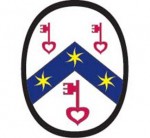 Open Business Meeting
Open Business Meeting
Modality: In Person (with extra RGME Zoom option for Virtual attendance by people registered for the Congress)
Thursday 11 May 2023 from 12:00 to 1:00 pm EDT (GMT-4). Fetzer Center 1035
(Congress Program, page 19)
We resumed our tradition of in-person Business Meetings at the Congress with an Open Business Meeting at lunchtime.

2023 Congress Business Meeting Poster
“Handouts” for the Meeting, in 1 page each:
As in 2021 and 2022, the RGME also held an online Pre-Congress Business Meeting within the weeks leading up to the Congress, as a way to prepare for the planning onsite at the Congress. The practice also gives the opportunity to gather the voices of participants who do not attend the Congress (for example, with interests in other areas) as well as those who do.
See our Business Meetings.
Views from the Business Meeting
Photographs were provided by Jessica L. Savage, who produced the Minutes for the Meeting, and by Barbara Williams Ellertson.

“A Fine Spread” at the 2023 Congress Business Meeting. Photograph by Jessica L. Savage.
The Room with a View, Online Viewing Screen Included

Lunchtime Open Business Meeting at the 2023 Congress. Photograph by Barbara Williams Ellertson.
*****
Reception
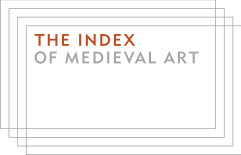 Co-Sponsored by
Co-Sponsored by
Research Group on Manuscript Evidence,
Index of Medieval Art at Princeton University, and
Societas Magica

Invitation to the Reception at the 2023 Congress
Thursday 11 May 2023
(Congress Program, page 56)
With the resumption of in-person activities at the ICMS, after the cancelled Congress in 2020 and the fully virtual Congresses in 2021 and 2022, we returned to our tradition of a Reception.
As before, we co-sponsored the event with the Societas Magica and the Index of Medieval Art (formerly the Index of Christian Art). These co-sponsorships for our Receptions sometimes occur with one of these organizations (as in 2014), the other (as in 2016), or both of them (as in 2015).
Greetings from the Reception

2023 Reception at ICMS Kalamazoo with RGME Associates and others. Photograph by Barbara Williams Ellertson.
Working the Room

2023 Reception. Photograph by Barbara Williams Ellertson.
*****
The ‘Board Room’
An informal ad-hoc addition to our activities at the 2023 Congress resumed a tradition for previous in-person Congresses. See, for example,
2019 International Congress on Medieval Studies: Report.
Outside the Program, a set of traditional informal gatherings (“Evening Sessions”) offered the occasion to revive the in-person tradition of meetings in an ad-hoc ‘Board Room’ where board games brought for the occasion formed a focus of activity and conversation, with some elements of RGME planning.
For example, from those conversations emerged the plan for the Episodes of “The Research Group Speaks” for the summer. See:
- “The Research Group Speaks”: The Series Episodes for July and August 2023.
This year, the Board Room included an ad-hoc hybrid component for participation at a distance as well.

2023 ‘Board Room’ with David Porreca, Michael Allman Conrad, and Derek Shank. Photograph by Mildred Budny.

2023 ‘Board Room’ with Vajra Regan, Michael Allman Conrad, and David Miles. Photograph by Mildred Budny.
*****
Watch this space for developments for the 2024 Congress and other events.
See, for example, 2024 International Congress on Medieval Studies: Call for Papers.
*****
